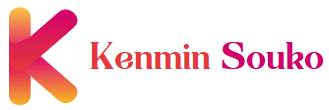
PLOS Biology に掲載された新しい研究は、マルハナバチが他のミツバチを見て模倣することで新しい行動を学習できること、およびこの行動がコロニー全体に急速に広がることを示しています。 この研究は、ミツバチが食物を探す方法において社会的学習が重要な役割を果たしていることを示しています。
新しい研究によると、ミツバチは他のミツバチを観察して学習することで、行動の新しい「傾向」を認識し、別のバージョンが検出された場合でも、ある形態の行動がコロニー全体に急速に広がる可能性がある.
ロンドンのクイーン メアリー大学が主導し、本日 (3 月 7 日) に発表されたこの研究は、 バイオプラス、社会的学習がマルハナバチの広範な行動につながるという強力な証拠を提供します-この特定の場合 どうやって 彼らは食べ物を食べます。
これを証明するために、さまざまな実験が行われました。 研究者たちは、赤いタブを時計回りに押すか、青いタブを反時計回りに押すことで開くことができる 2 択パズル ボックスを設計し、ショ糖溶液の 50% の報酬を明らかにしました。
「表示」ミツバチは赤または青のタブを使用するように訓練され、「オブザーバー」ミツバチは見ています。 観察者がパズルを解く番になったとき、代替案を発見した後でも、圧倒的に繰り返し同じ方法を使用することを選択しました。 教えられたキュウリに対するこの好みは、ミツバチのコロニー全体によって維持され、箱の開口部の平均98.6%が教えられた方法を使用して作られました。
パズルの四角形の解決策を獲得するための社会的学習の重要性は、デモンストレーターがいない対照群によっても実証されました。 このグループでは、何匹かのミツバチがパズルの箱を開けることができましたが、別のミツバチを見て利益を得たミツバチよりもはるかに少ない回数でした。 コントロール蜂がデモンストレーターと一緒に1日に開けた箱の平均数は、1日あたり28箱でしたが、コントロールコロニーでは1箱だけでした。
追加の実験で、研究者は「青」と「赤」のデモンストレーターを同じミツバチのグループに入れました。 最初の母集団では、12 日目までにオブザーバーが箱を開けた 263 件のケースの 97.3% が赤の方法を使用しました。 2 番目のグループでは、オブザーバーは 1 日を除くすべての日で赤色よりも青色の方法を好みました。 いずれにせよ、これは、ハチが好みの行動を変えるのではなく、経験豊富なミツバチが採餌から引退し、新しい学習者が出現したことにより、そもそも集団に行動傾向がどのように現れるかを示しました.
ミツバチは、赤いタブを押して箱のふたを時計回りに回して、パズルの箱を開けます。 クレジット: Bridges AD 他 2023年、PLOS生物学
同様の実験からの同様の結果が使用されました[{” attribute=””>species such as primates and birds to suggest that they, like humans, are capable of culture. If bumblebees are capable of this, too, this could potentially explain the evolutionary origin of many of the complex behaviors seen among social insects. It might be possible that what now appears instinctive could have been socially learned, at least originally.
Dr. Alice Bridges, the lead author from Queen Mary University of London, said: “Bumblebees – and, indeed, invertebrates in general – aren’t known to show culture-like phenomena in the wild. However, in our experiments, we saw the spread and maintenance of a behavioral “trend” in groups of bumblebees – similar to what has been seen in primates and birds. The behavioral repertoires of social insects like these bumblebees are some of the most intricate on the planet, yet most of this is still thought to be instinctive. Our research suggests that social learning may have had a greater influence on the evolution of this behavior than previously imagined.”
Professor Lars Chittka, Professor of Sensory and Behavioural Ecology at Queen Mary University of London and author of the book ‘The Mind of a Bee’, said: “The fact that bees can watch and learn, and then make a habit of that behavior, adds to the ever-growing body of evidence that they are far smarter creatures than a lot of people give them credit for.
“We tend to overlook the “alien civilizations” formed by bees, ants, and wasps on our planet – because they are small-bodied and their societies and architectural constructions seem governed by instinct at first glance. Our research shows, however, that new innovations can spread like social media memes through insect colonies, indicating that they can respond to wholly new environmental challenges much faster than by evolutionary changes, which would take many generations to manifest.”
Reference: “Bumblebees acquire alternative puzzle-box solutions via social learning” by Alice D. Bridges, HaDi MaBouDi, Olga Procenko, Charlotte Lockwood, Yaseen Mohammed, Amelia Kowalewska, José Eric Romero González, Joseph L. Woodgate and Lars Chittka, 7 March 2023, PLOS Biology.
DOI: 10.1371/journal.pbio.3002019

「アマチュア主催者。ビールの伝道者になりたい。一般的なウェブファン。認定インターネット忍者。熱心な読者。」







More Stories
スペースXのファルコン9ロケットが打ち上げ前に停止、億万長者が特別任務に就く
ブラックホールはどのようにしてこれほど大きく、そして速く成長したのでしょうか?答えは暗闇の中にあります
世界最速の顕微鏡が電子の動きをアト秒で捉える:ScienceAlert